13 April 2025
Ever dreamed of riding the slopes of an active volcano, wind in your hair, heart pounding with adrenaline? Well, welcome to volcano boarding, one of the world’s most extreme and thrilling adventure sports. Think of it as snowboarding, but instead of fluffy white snow, you're gliding down a steep bed of volcanic ash and rock. Sounds wild, right? Because it absolutely is!
If you're the kind of traveler who craves excitement and loves testing limits, volcano boarding is something you must add to your bucket list. But before you grab a board and hurl yourself down a fiery mountain, let’s break it down—how it works, where to do it, and what to expect.
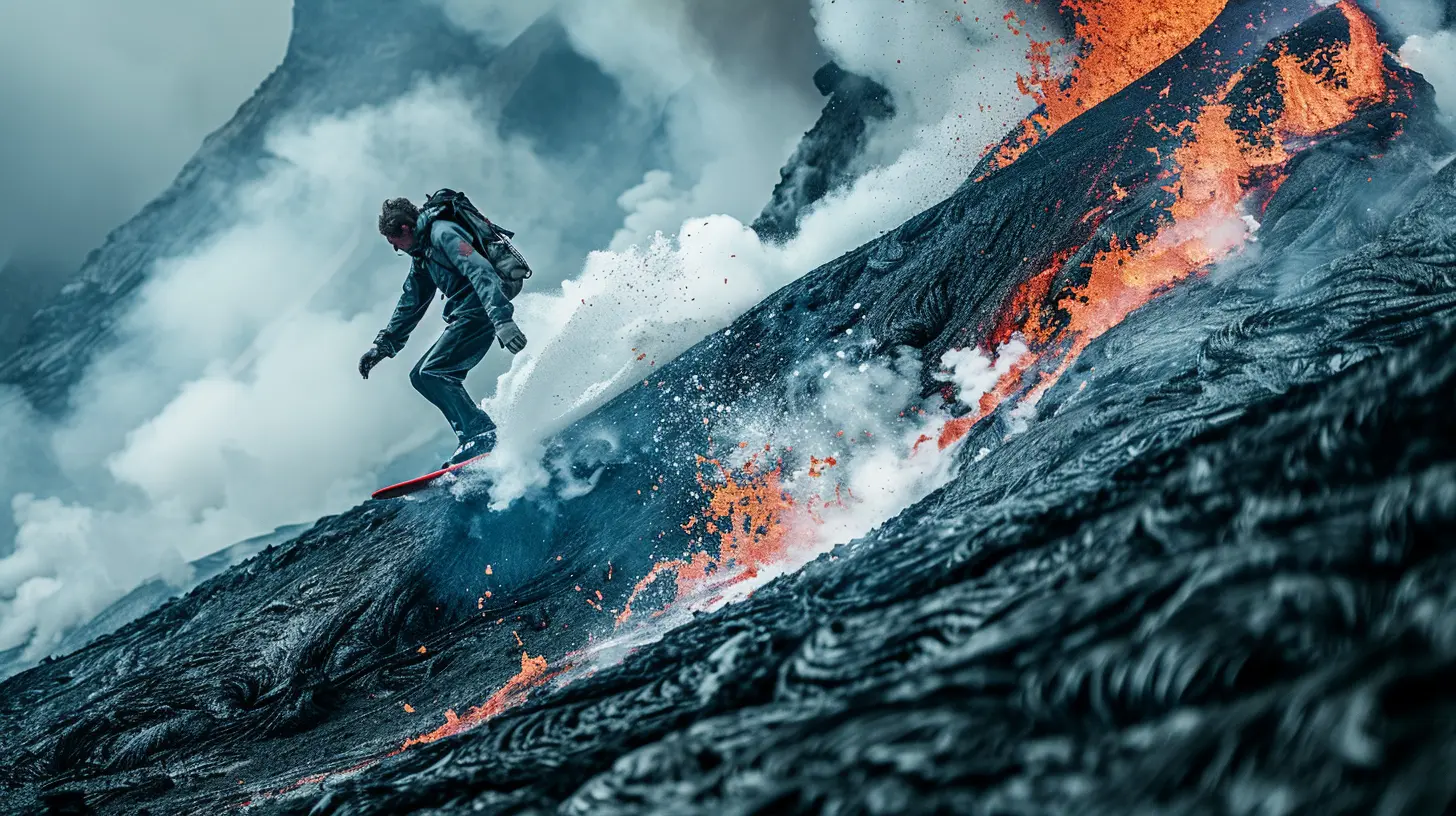
What is Volcano Boarding?
Volcano boarding (also called volcano surfing) is an extreme sport that involves sliding down the side of an active volcano on a wooden or metal board. Unlike traditional snowboarding or sandboarding, here, you’re dealing with hot volcanic ash, razor-sharp rocks, and steep slopes reaching up to 40 degrees.It’s a new-age adventure, first made popular in the early 2000s by thrill-seeker Daryn Webb, who pioneered the sport in Nicaragua. And ever since, thousands of daredevils have been flocking to Central America to give it a shot.
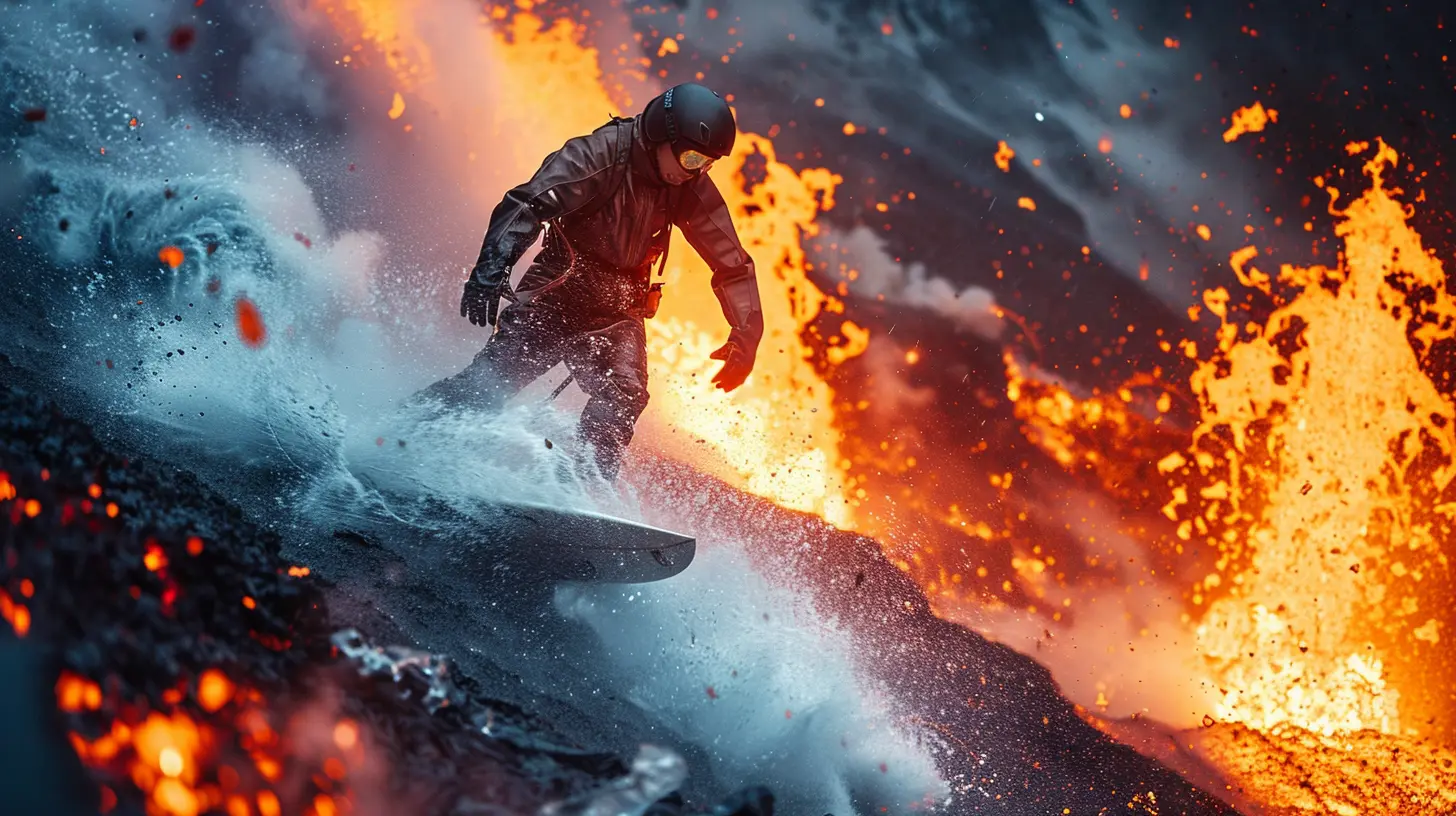
Best Place in the World for Volcano Boarding
The best— and arguably only commercial— location for volcano boarding is Cerro Negro, a black, smoldering volcano in Nicaragua. Located near León, Cerro Negro is an active volcano that last erupted in 1999, leaving behind the perfect slope for boarding.At 728 meters (2,388 feet) high, Cerro Negro isn’t the world’s tallest volcano, but its steep, ash-covered slope creates an ideal boarding experience. Plus, the thrill factor of knowing you’re sliding down an active volcano makes it all the more exciting.
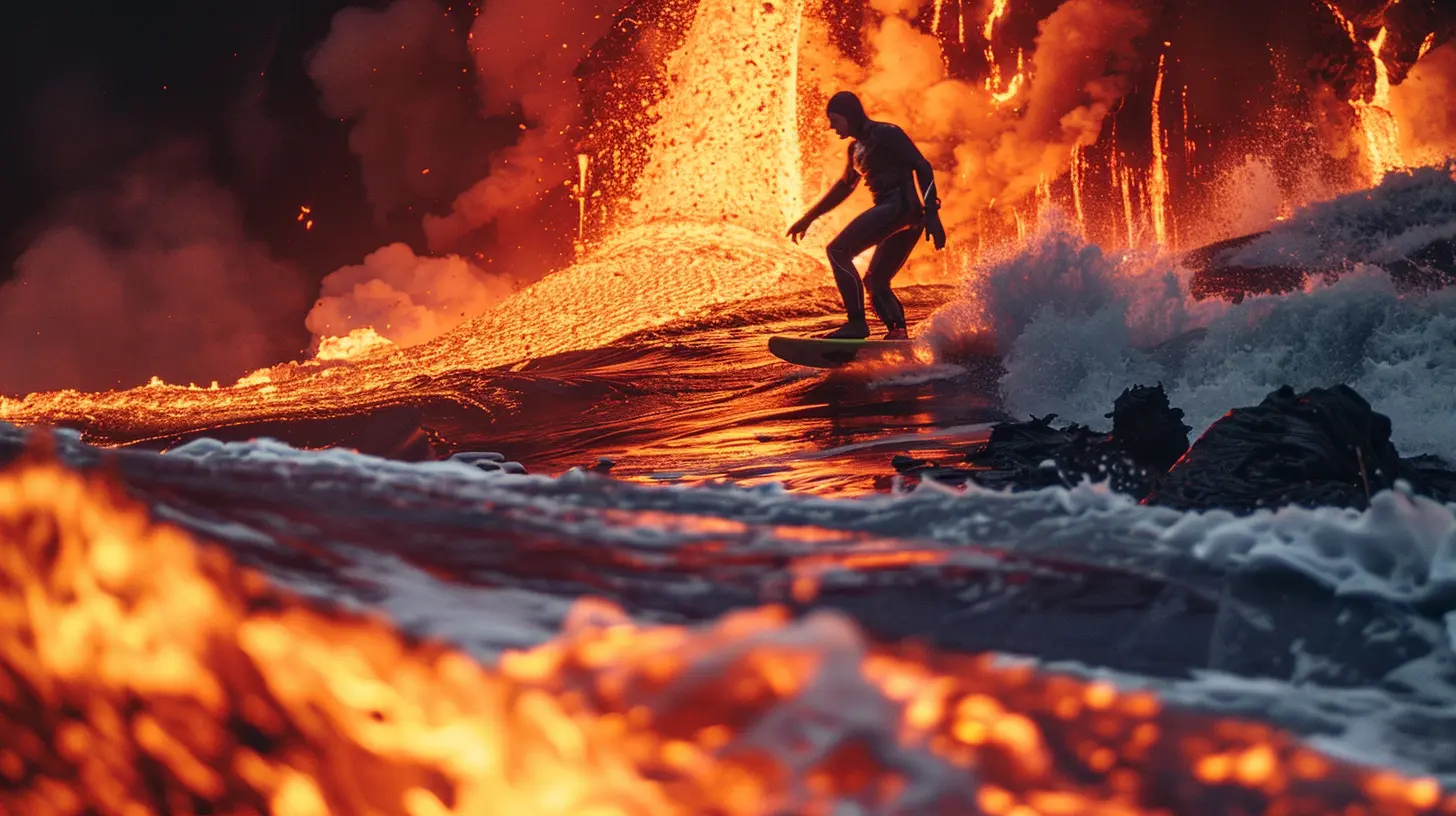
How Does Volcano Boarding Work?
Alright, let’s get into the mechanics of this insane activity. It’s pretty simple—1. The Hike Up – First, you have to hike for about 45 minutes to an hour to reach the top of Cerro Negro. The slope is steep, and carrying your board adds extra weight, so it’s a decent workout. But trust me, the view at the top is worth every step!
2. Suiting Up – Once at the summit, you’ll be given a protective suit, goggles, and gloves because, spoiler alert—volcanic ash is rough, and you don’t want road rash from hell. Some people even wear masks to protect from inhaling dust.
3. The Ride Down – You sit or stand on your board and launch yourself down the 500-meter descent, reaching speeds of up to 80 km/h (50 mph). You can either go full-throttle and speed down like a rocket or take it slow and control your descent. Either way, it’s an absolute adrenaline rush.
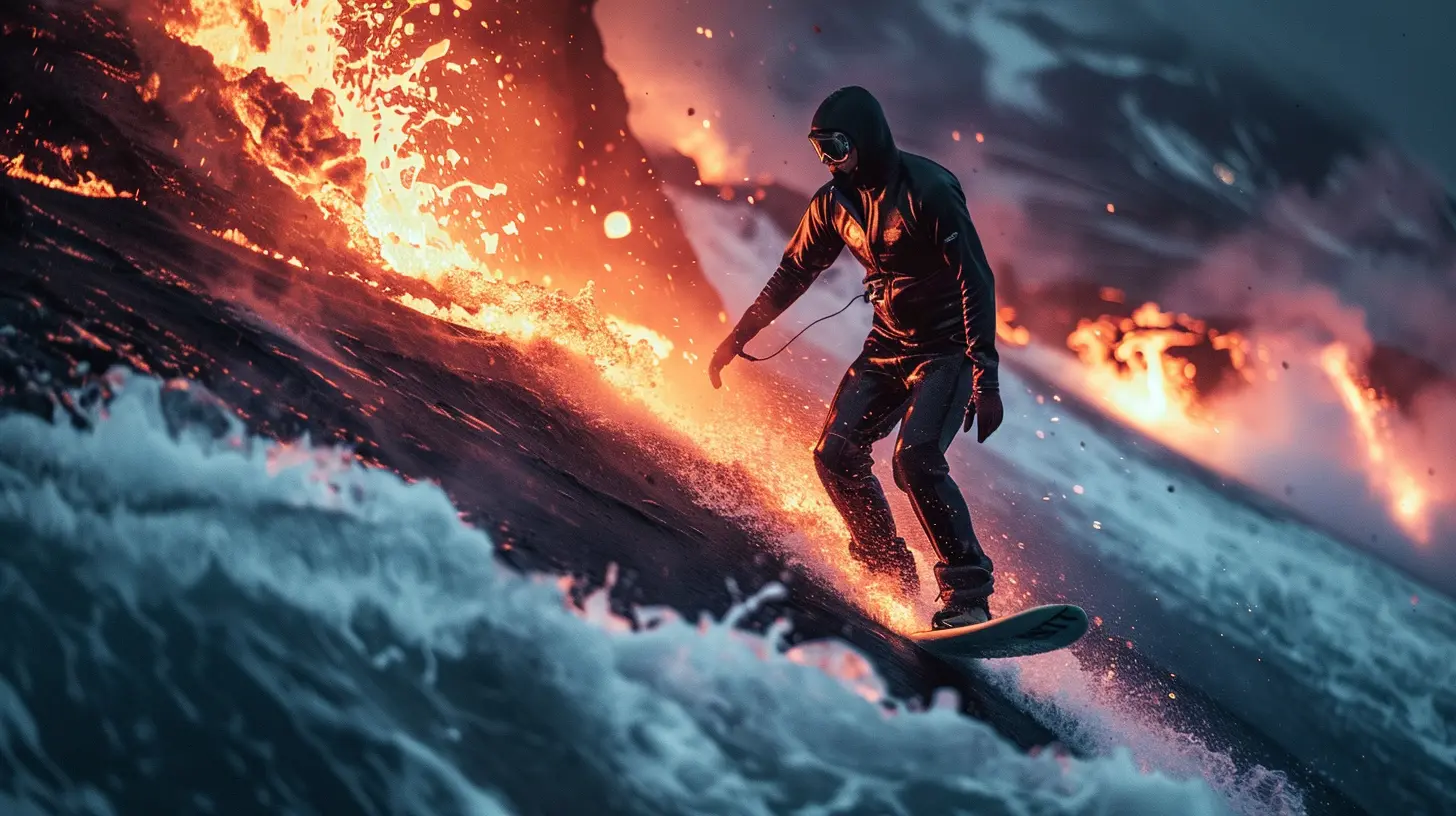
Standing vs. Sitting: How Do You Ride?
There are two ways to volcano board:- Sitting (Most Common & Recommended) – Sitting on your board, like a sled, gives you more control. You can lean back to gain speed or dig your heels into the ash to slow down.
- Standing (For the Brave & Skilled) – Similar to snowboarding, but way harder due to the loose volcanic sand. It takes serious balance and confidence, and most beginners wipe out fast.
If it's your first time, sit down and enjoy the ride—you’ll still get the full thrill without the risk of eating volcanic gravel.
Is Volcano Boarding Safe?
Good question. Yes, relatively—but let’s be real, it’s still an extreme sport. The biggest risks include:- Falling and getting scraped by volcanic ash (it’s like super rough sandpaper)
- Crashing at high speeds if you don’t control your balance
- Getting volcanic dust in your eyes, mouth, and nose (goggles and a bandana help)
Most tour operators will provide safety gear, a briefing, and show you techniques to avoid major injuries. As long as you follow their instructions and don’t go overboard (literally), you’ll be fine.
What to Bring for Volcano Boarding?
To make your adventure smooth and safe, here’s what you should pack:- Long-sleeved shirt and pants (to avoid ash burns)
- Sturdy hiking shoes (you’ll be climbing a volcano, after all)
- Sunglasses or goggles (to keep dust out of your eyes)
- A bandana or mask (trust me, volcanic dust gets everywhere)
- Sunscreen (there’s zero shade on Cerro Negro)
- GoPro or camera (optional, but you’ll want proof of this craziness)
- A sense of adventure (mandatory!)
The Adrenaline Factor: What Does It Feel Like?
Imagine sledding down a steep hill, but instead of soft snow, it's rough volcanic ash. The wind howls past your ears, tiny gravel pieces fly everywhere, and your heart pounds like crazy as you speed downward.At first, you might be tempted to tap the ground with your hands or feet to slow down, but once you get the hang of it, you’ll crave more speed. Before you know it, you're flying down the volcano, screaming with pure joy (and maybe just a tiny bit of fear).
When you finally reach the bottom, covered in dust and possibly grinning like an idiot, you’ll feel like an absolute badass.
Why You Should Try Volcano Boarding
Still undecided? Here’s why you need to give volcano boarding a shot at least once in your life:- It’s a one-of-a-kind experience – Seriously, how many people can say they've surfed down an active volcano?
- It’s a major adrenaline rush – If you’re an adventure junkie, this will give you an instant fix.
- It’s surprisingly affordable – Tours usually cost between $25–$35, which is a steal for such an epic adventure.
- Bragging rights – Trust me, telling people at home you rode down a volcano will make you the most interesting person in the room.
Final Thoughts: Is Volcano Boarding For You?
If you love adventure, enjoy pushing your limits, and don’t mind getting a little dusty (okay, a lot dusty), then volcano boarding is 100% for you. It’s fast, exciting, and gives you memories that will last a lifetime.On the other hand, if you’re terrified of high speeds, hate dirt, or have a deep-rooted fear of active volcanoes (understandable), you might want to sit this one out.
But if you’re up for the challenge, Cerro Negro is waiting. Are you ready to surf the slopes of fire?


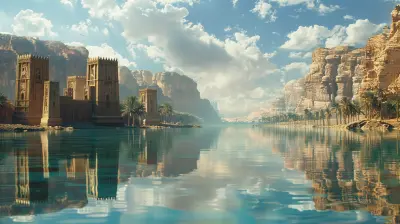
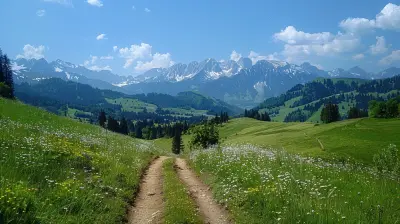

Jonah Klein
What an exhilarating experience! Volcano boarding sounds like the perfect blend of adventure and nature's raw power. I'm curious about the safety measures in place and the best volcanic spots for this thrilling ride!
April 21, 2025 at 3:13 AM